Communications about communications. Or PR about PR. We don't do enough of it.
by Sarah Hamilton
Read moreYour Custom Text Here

Communications about communications. Or PR about PR. We don't do enough of it.
by Sarah Hamilton
Read more
Effective, slick and joined-up working across the public sector. Of course it makes sense, but the reality of pulling it off well can be harder than it looks. Here’s a rallying cry for getting better and smarter at it.
by Nicola Bonas
Read more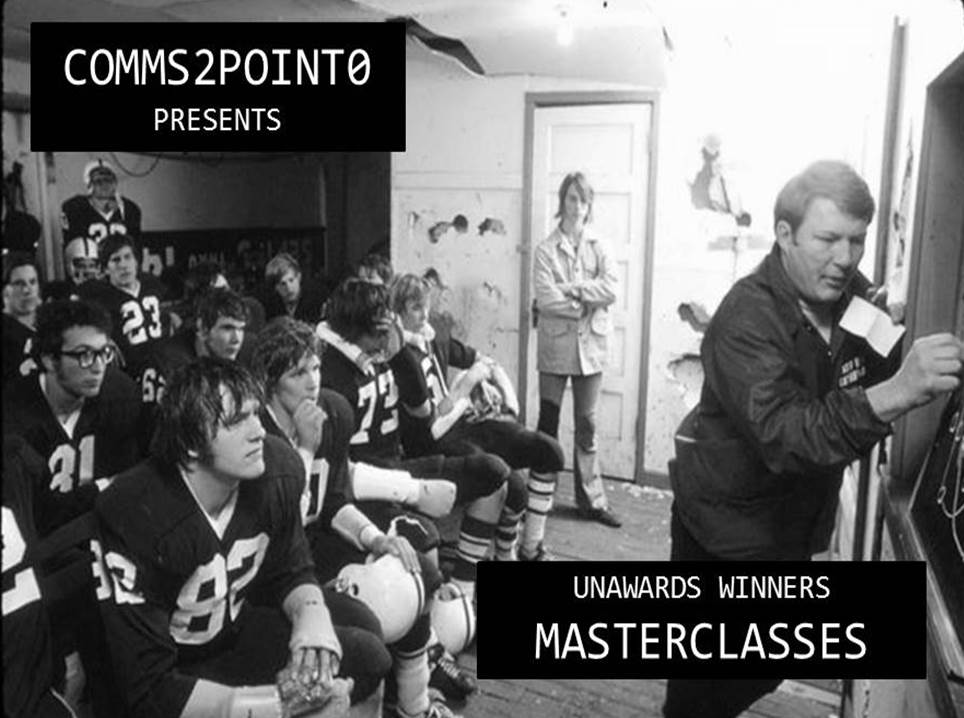 The UnAwards15 were my highlight of 2015. Having the opportunity to see the passion, creativity and results from some of the brilliant work taking place across the UK and beyond was quite a privilege.
The UnAwards15 were my highlight of 2015. Having the opportunity to see the passion, creativity and results from some of the brilliant work taking place across the UK and beyond was quite a privilege.
The UnAwards ceremony was a belter – well, I swear I heard someone say that on the day.
It was a unique event which placed an important spotlight on our industry and in a way which was accessible to everyone regardless of budget or grade.
After the event, many of you asked for the chance to see and hear more about the winning work.
So, with just one shake of a billy goat’s tail, we have organised an UnAwards Winners Masterclass.
Actually, that’s a lie. We have organised three. This gives us the chance to take the Masterclasses around the country with regional events taking place in Leeds, Birmingham and London.
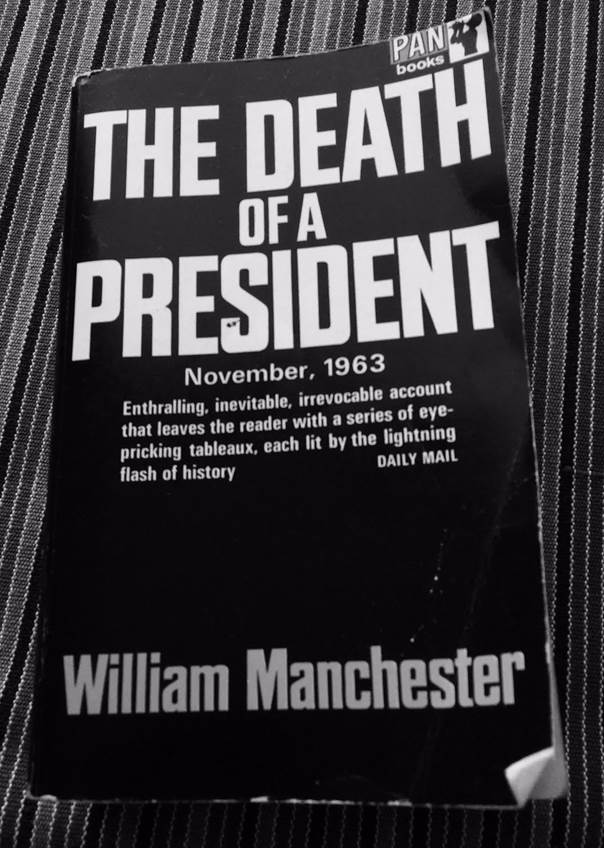 History teaches us many things. Not least how we have responded in times of crisis.
History teaches us many things. Not least how we have responded in times of crisis.
"The Lincoln continues to slow down. Its interior is a place of horror. The last bullet has torn through John Kennedy's cerebellum, the lower part of his brain.
"...at first there is no blood. And then, in the very next instant there is nothing but blood...Gobs of blood as thick as a man's hand are soaking the floor of the back seat..."
I recently read The Death of a President, William Manchester's brilliant unflinching account of the events leading up to and the aftermath of the assassination of John F Kennedy in November 1963.
You can see the Wikipedia entry about the book here.
Everything is in here, from the paintings on the wall of the hotel room where Kennedy spent his last night alive to the layout of the emergency room the president lay in at Parkland Memorial Hospital as doctors tried vainly to save his life.
 One of the best things about having the comms2point0 web site is the opportunity to showcase and share other people's rich learning. Learning from one another is at the heart of our ethos. This post ticks all of those boxes.
One of the best things about having the comms2point0 web site is the opportunity to showcase and share other people's rich learning. Learning from one another is at the heart of our ethos. This post ticks all of those boxes.
Darren Caveney’s recent blog post about his experiences as a Head of Communications over the last 10 years got a huge and admiring response from his friends and colleagues across the public sector comms industry.
At the same time I was asked to do a second year as a mentor for one of local government’s aspiring communications talents on the LGcommunications’ Future Leaders programme.
Both Darren and LGcommunications got me thinking about my experiences as a leader of communications teams and what, if anything, I really had to pass on to a leader of the future (the very near future if the track record of LGcommunications of spotting stars is anything to go by. Step forward Emma Rodgers and Natalie Corney, as just two recent examples).
The results are in: here are my top 10 honest lessons from 11 years as a Head of Communications...
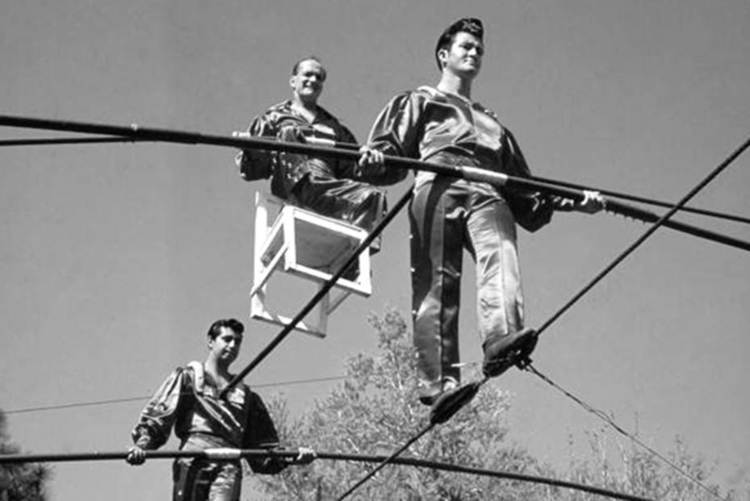 We know that a common complaint from comms folk, and others for that matter, is a lack of recognition for their work.
We know that a common complaint from comms folk, and others for that matter, is a lack of recognition for their work.
Whether it’s a brilliant campaign, managing communications through a crisis or just turning up every day of the year and being the best you can be it’s not a lot to ask to get the odd ‘well done’ or ‘thank you’.
But it doesn’t happen often enough and that is the ultimate reason behind the comms2point UnAwards 15. To shine a light on the colleagues proudly flying comms flags across the sectors.
Now there’s only one thing better than being shortlisted for an award and that’s being nominated by someone else for an award. It’s a special thing. It means you’ve caught someone’s eye, demanded their attention or impressed them with your creativity, doggedness, enthusiasm and skills.
Know someone like that? Then why not nominate them in the UnAwards 15.
All you need to do is complete this dead easy entry form here.
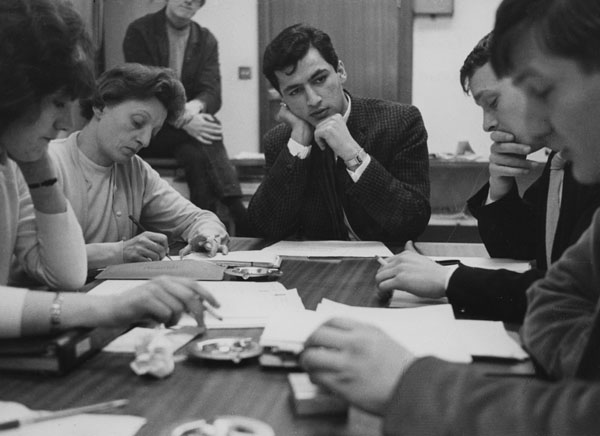 An event for public sector comms people was staged in Cardiff. There was a lorry load of learning. Here's a snapshot from one of the organisers.
An event for public sector comms people was staged in Cardiff. There was a lorry load of learning. Here's a snapshot from one of the organisers.
by Will Barker
Last week in Cardiff saw the culmination of a good few months of work for Kate Hammond (@GlamHamm) and myself (@willdotbarker) – yes Will and Kate and no, not that Will and Kate – at our #PSdigital conference that we’d set out to organise on behalf of 1000 Lives Improvement and Public Health Wales.
Cool, but what exactly was #PSdigital?
We’re glad you asked (I’d recommend taking a look at the hashtag or this Storify if you have five minutes, which you probably do as you’re reading this blog).
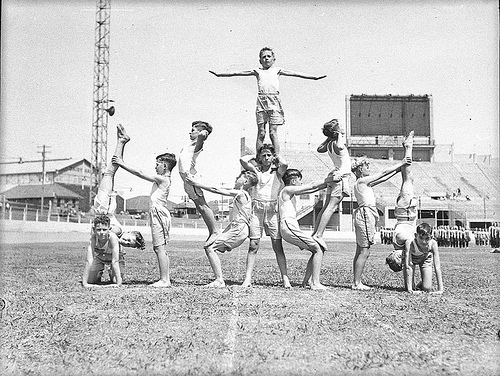 Very rarely in life do you get to choose a brand new comms team from absolute scratch. You normally inherit folk and work with what you've got. But what if you had a blank sheet and the chance to choose. Who would make the cut?
Very rarely in life do you get to choose a brand new comms team from absolute scratch. You normally inherit folk and work with what you've got. But what if you had a blank sheet and the chance to choose. Who would make the cut?
by GUEST EDITOR Ben Capper
Let’s just say you were creating a Comms team totally from scratch.
Let’s also say it can only include three people.
Sure, you could always buy in a bit of agency time here and there, but that’s essentially your lot.
Who makes the cut? Who doesn’t? Why so?
Would this be the same as it would have been five years, or even a year ago?
How do we future-proof ourselves? What experience, and what attitudes would you want to see?
 10 years in communications is a long time. 10 years being a head of comms is a really long time. Lessons are a plenty so here’s a post which attempts to capture the key ones.
10 years in communications is a long time. 10 years being a head of comms is a really long time. Lessons are a plenty so here’s a post which attempts to capture the key ones.
Well here’s the thing. I woke up this morning and for the first time in 10-years I am not a head of comms. This is a good thing because it means I have moved on to an exciting new phase of my career.
It’s an obvious time to reflect. Has 10 years of being a head of comms made me a better comms professional? And would I recommend the role to someone else? Here’s my take on it, my top tips and answers to these two simple questions.
I have had some fantastic opportunities. Worked with some brilliant colleagues. Won over a dozen industry awards with them and learned way more than you could ever capture in a single post. I have also sat in some dreary meetings. Had to argue the case for comms, over and over and over and over, and crossed swords with some quite unpleasant people. The rough with the smooth. You know the score.
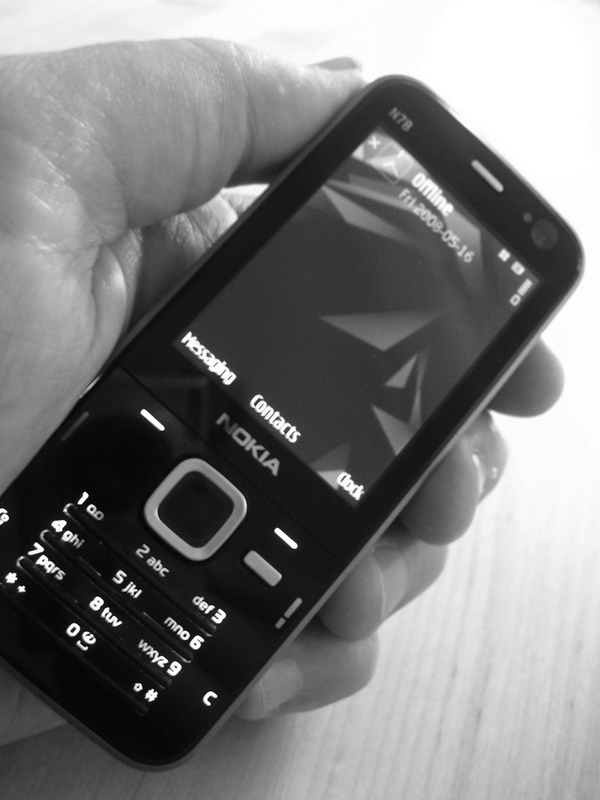 Govdelivery's annual UK Public Sector Communications Conference has become an essential part of the September calender. Why? It delivers good content. You can learn more about this year's line-up here. We take a look at one of the key speakers on the role of text messaging in comms.
Govdelivery's annual UK Public Sector Communications Conference has become an essential part of the September calender. Why? It delivers good content. You can learn more about this year's line-up here. We take a look at one of the key speakers on the role of text messaging in comms.
By Michelle Lee
Look around in a public setting. You will notice more people hunched over a mobile device to communicate or access information than ever before. More than 35 million UK residents own a mobile phone and they’re accessing their devices for an average of 3 hours and 16 minutes each day – the equivalent of almost a full day per week.
Mobile, as a marketing channel, can no longer be ignored in order to succeed in today’s world – especially in public sector communications. Accessibility, convenience, clarity, and universality make mobile an essential channel to communicate with the public.
 Every now and then we have a guest editor. They pick five links, write a post and pick a tune and we post them to Twitter. We also ask for a random fact about them that not many people know. Today's guest editor? She was in a team that finished 2nd in the Irish Dancing World Championships in 1995.
Every now and then we have a guest editor. They pick five links, write a post and pick a tune and we post them to Twitter. We also ask for a random fact about them that not many people know. Today's guest editor? She was in a team that finished 2nd in the Irish Dancing World Championships in 1995.
Drawing on other influences is a vital part of being an effective communications practitioner whatever level you work at and that was the thought process behind the random fact I shared today.
Public relations does not exist just to serve itself – it helps businesses perform at their absolute best whether that’s to sell toys or fight fires – so it’s important to soak up other sources of information to understand organisations and those they need to communicate with.
A good place to start is with what’s around us, what culture we’re from, who family members are and, perhaps, what hobbies we’ve been exposed to.
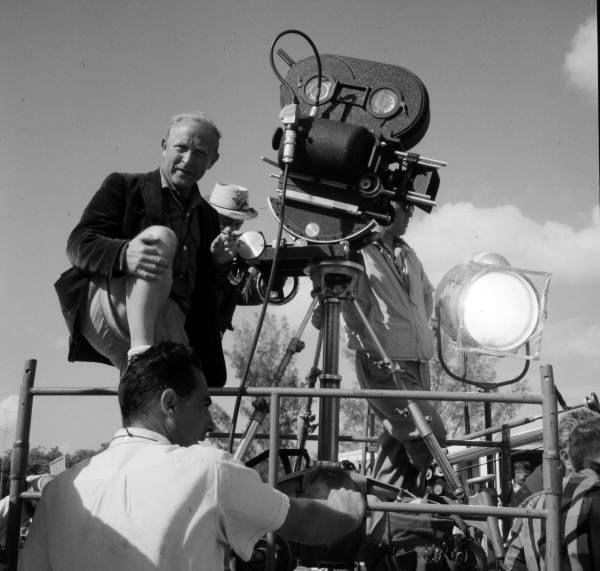
Making videos doesn't have to be an epic production as one communications officer discovered on one of our courses.
by Rob McCleary
My memories of making videos at University mainly involved me falling asleep in editing rooms whilst my colleagues did all the work. I always had more of an aptitude (and face) for radio so when I decided to get into video making for my council’s social media page I hopped on a train and headed to the comms2point0 video course only armed with my trusty iphone 4 and a sandwich.
The day long course started off with introductions from Steve from the Film Café whose CV includes working on Dr Who and Torchwood. Our first icebreaker task was, in pairs, to go out onto the distractingly pretty corridors of the Manchester Museum of Science and Industry and film each other talking about what we wanted to get out of the day.
 Brand identity is hugely important and many comms folk will relate to this post on the subject. It's an instant classic. Print it out and put it on your office wall today...
Brand identity is hugely important and many comms folk will relate to this post on the subject. It's an instant classic. Print it out and put it on your office wall today...
by GUEST EDITOR Ben Capper
comms2point0 is one of my favourite websites.
There are loads of interesting ideas and a great community. There’s stuff on here that helps me to find solutions to issues on a daily basis.
Not very colourful though is it?
Don’t know about you, but sometimes I think it’s crying out for a bright splash of pink, maybe with some orange writing on it.
And that typeface. It’s OK for some people I guess, but surely something friendlier, some more hand-writing-ish would make it look, you know, just a bit nicer.
 Speaking for yourself online is a key skill for everyone no matter what job you do. But should that always be left to PR and comms people?
Speaking for yourself online is a key skill for everyone no matter what job you do. But should that always be left to PR and comms people?
by Anke Holst
Public relations, communications: broadcasting to the world outside what the organisation needs it to know. Social media seems to be an ideal way of doing this, so it's added to all the other channels comms teams know about and serve.
'Go where your audience is.' So far, so good.
 An annual free event that has grown to be an essential event for public sector comms people who may be involved with emergencies of any description.
An annual free event that has grown to be an essential event for public sector comms people who may be involved with emergencies of any description.
by Ben Proctor
comms2point0 sits at the heart of a fantastic community of people who want to make communications better, want to innovate with digital tools and want to drive change in organisations, especially public sector organisations.
We need that community to turn that energy and focus to emergency situations. Organisations are already doing great work to communicate with the public in emergencies but we can do more and one thing we know is: emergencies are always different.
 The #prstack project is something we've blogged about. It's a crowdsourced review of apps and tools that are available for comms people. There has been an ebook published on it. It's worth a look. Here's how one person got involved.
The #prstack project is something we've blogged about. It's a crowdsourced review of apps and tools that are available for comms people. There has been an ebook published on it. It's worth a look. Here's how one person got involved.
by David Sawyer
I met Stephen Waddington in October last year.
He was speaking at a CIPR event in Glasgow about his 10 pledges to modernise the public relations industry in the UK.
Here was a man speaking my language. New PR.
It wasn't always the case.
Five years ago, like many senior PR pros, I had the digital fear.
But through a combination of sheer hard work and determination, I grasped the digital nettle.
I grappled with a bewildering array of online tools. Trying and testing them in a bid to make my "new PR" life easier.
 There’s a certain age and point in your life when you begin to reflect on things that little bit more than you did in your care-free twenties…
There’s a certain age and point in your life when you begin to reflect on things that little bit more than you did in your care-free twenties…
I’ve reached that point.
Reflecting.
These reflections include work life and personal life and that’s a good and natural thing. Questioning what you’ve achieved and delving a little deeper into what you really want to do with the rest of your life.
And events which occur in our personal lives add to this and can't help but remind you that nothing lasts forever.
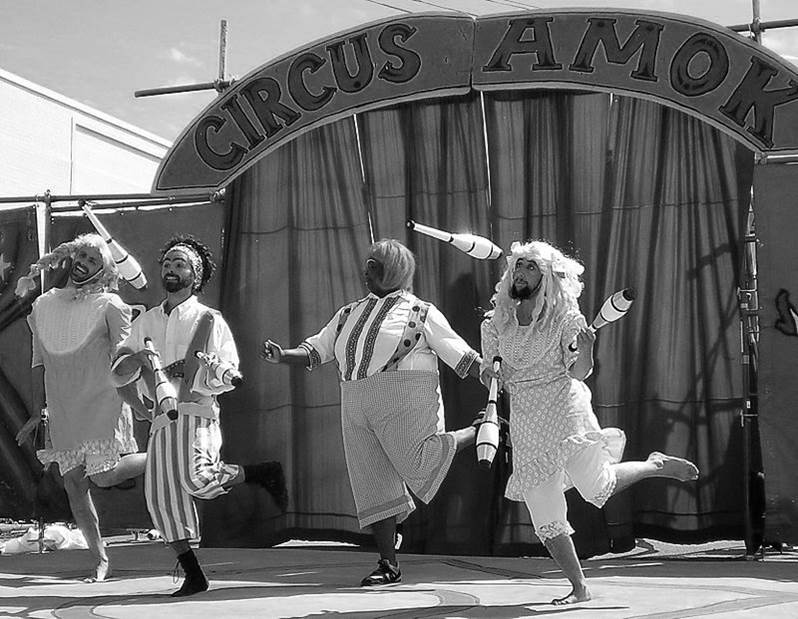 It's an interesting dilemma for a comms professional - is it best to specialise or to generalise? Or do you need to be a generalist with some specialisms?
It's an interesting dilemma for a comms professional - is it best to specialise or to generalise? Or do you need to be a generalist with some specialisms?
by Nicky Speed
‘Press Officer needed to manage the media and write lively copy’ the job advert headline read. Really, is that all you’re asking for? Do those jobs actually exist anymore? To have the luxury of having such a big communications team to be able to specialise sounds great in theory – but in the digital age and more demands placed on communications people, is that realistic?
No can be the hardest word. But often the kindest. Here's a cut and out and keep guide to saying no when you really do need to politely shake your head at someone you work with...
Read more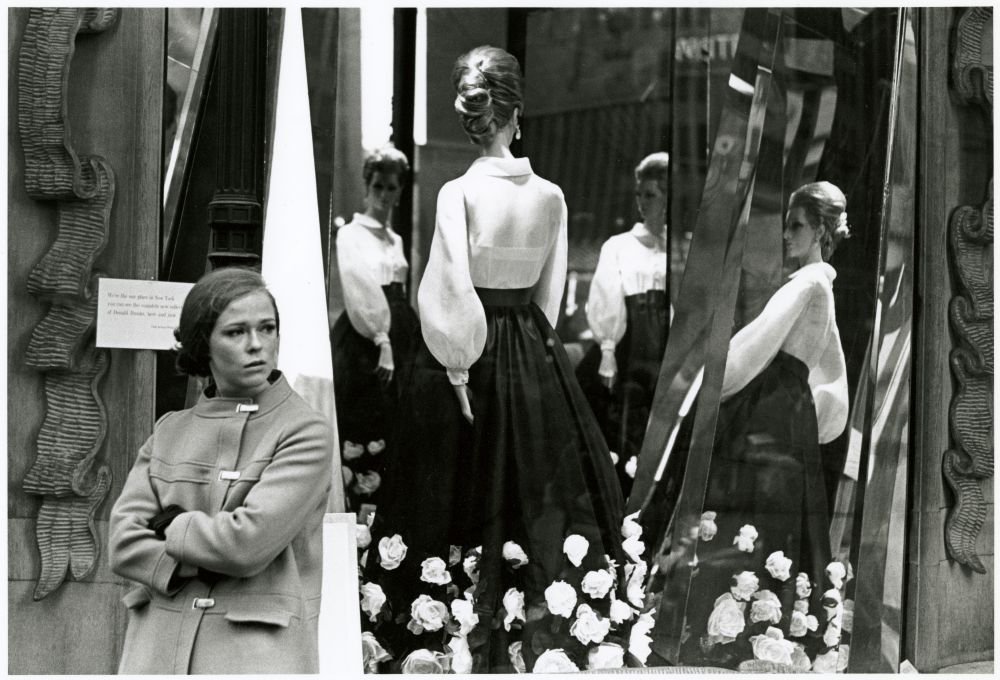 There was a tremendous response to Emma Rodgers' blog when it was first posted. A room 101 of comms. A room where you could send all the things you really don't like. After a slew of responses here is the second part.
There was a tremendous response to Emma Rodgers' blog when it was first posted. A room 101 of comms. A room where you could send all the things you really don't like. After a slew of responses here is the second part.
by Emma Rodgers
Some great Room 101 tweets and comments were shared when this blog post was published. I wanted to include them so captured below is what they said. Thanks to everyone for taking part in the banishing. If only it was that easy. But my oh my that cleansing feels good.